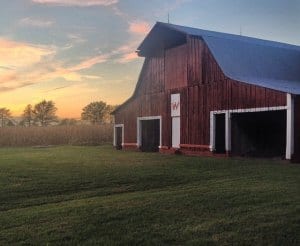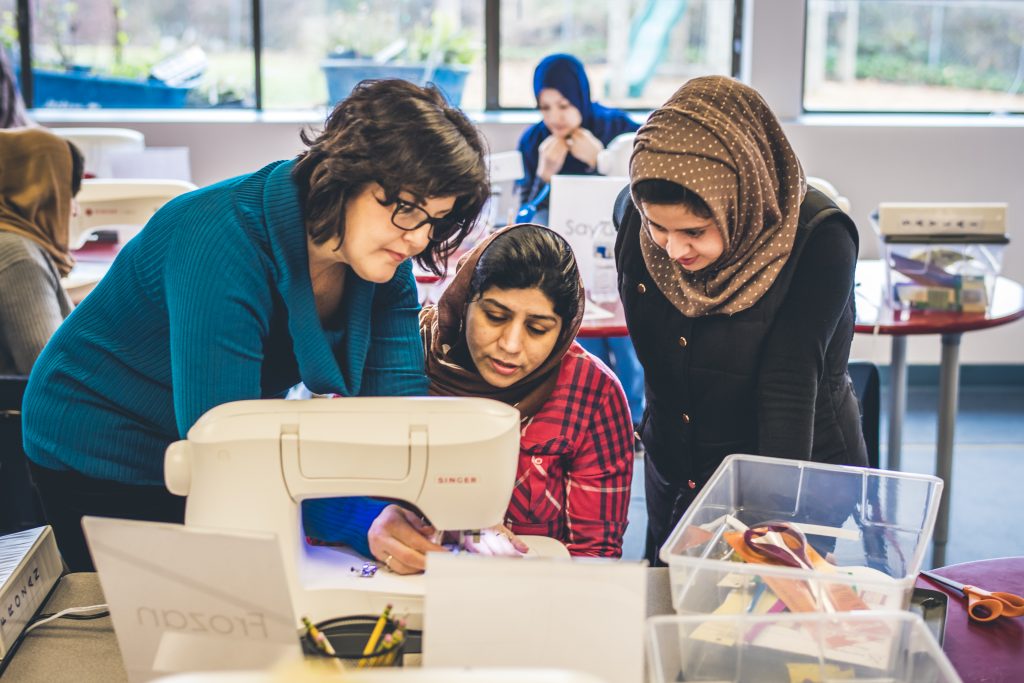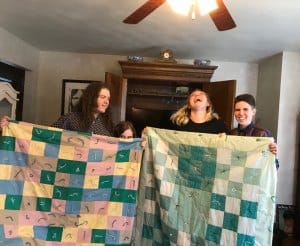The following is a reflection by Beth Watkins, World Relief Seattle Resettlement Intern.
I’ve thought a great deal about my hometown lately.
Being a fairly recent Seattle transplant, perhaps it’s simply homesickness finally kicking in. Perhaps the stark differences in landscape, the lack of familiar faces, and the infamous “Seattle freeze” are finally beginning to wear on me. Whatever the reason, home has been on my mind.

I come from a small midwestern town in southern Illinois with a population of about 500 people. It’s a largely agricultural community. Most people over the age of 60 still speak at least a little German. Once a year my entire town gets together to make and jar apple butter. Everyone is at least distantly related– there are probably a total of ten last names in the whole town. It’s a place that feels far removed from the rest of the world.
Last week I got to sit in on World Relief’s sewing class for the first time, and for a few hours, I was transported back to the Midwest, to quilting circles in church basements (albeit with a little more Dari than I remember being spoken at home). As I talked with the students and volunteers, I thought of my grandmother, who has hand-stitched multiple quilts for each of her children and grandchildren. It was so easy for me to picture her in this room of women, talking about fabric patterns and bragging about grandchildren. But as easy as it is to picture her there, I don’t think my grandmother will ever sit in a room full of Afghan women. Not because she doesn’t want to– she often expresses interest in my work at World Relief, asking about the people I’ve met and the things I’m learning– but because she lives hours from a major city with any detectable level of diversity. She’s simply unlikely to ever encounter a refugee in her daily life.

It’s easy for me to become angry at my community for being ambivalent or negative towards refugees…until I remember that my most powerful teacher has been my firsthand experiences with refugees themselves. These are experiences that many of my family members and neighbors will most likely never have, simply because they don’t have access to them. And while this doesn’t excuse prejudicial attitudes and behaviors, it does contextualize them. How can you come to care for someone you have never met, who is simply a theoretical idea, a conveniently distant scapegoat for economic disparity and a rapidly evolving cultural landscape?

My hope for my community is that somehow, eventually, they become personally connected to refugee communities. I hope they are allowed the same opportunities I’ve been given to sit with refugee families, to hear their stories, to stumble over language barriers, to share food and laughter and time together, to grow out of prejudice and into relationship. I don’t yet know what this looks like or how to make it happen–how to overcome physical distance and, in many cases, deep prejudice. I don’t know how these experiences will happen, but I know that the prejudice in my community will not change until they do. Until I find a way to bridge this gap, I can convey my own experiences and at least act as a small window into the lives of the refugees they have yet to encounter. I can act as a cultural broker for my own community, an invitation into a new way of being and moving through the world.

